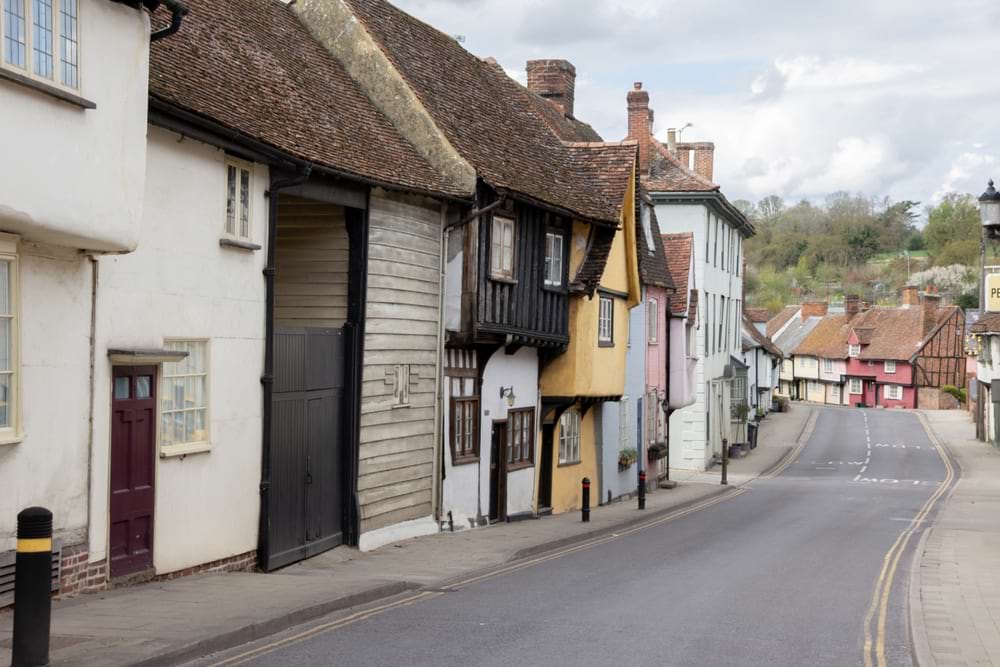Selling your house opens up many possibilities.
You can move to any town, anywhere in the United Kingdom.
So how do you decide where to live?
We’ve given you some pointers in this article.
What should you consider when choosing a place to live?
Choosing a place to live rarely focuses on just one or two details. Many factors contribute to a place’s ‘look’ and ‘feel’.
And what’s more, the most desirable location could be out of your price range!
Let’s take a look at the main points to consider.
Affordability
Considering moving to a particular location is pointless unless you can afford it.
You should set a clear budget before you weigh up your options. More on this further below in the blog.
You need to consider:
- How much you can afford to borrow for a mortgage
- The costs of running a home
- The costs of moving house
The south-east of England has by far the most expensive property market in the UK.
Meanwhile, rural parts of Wales, Scotland and Northern Ireland are far easier to afford.
You may need to compromise if you have clear bedroom numbers and square footage requirements.
Safety
Crime rate is a significant consideration for all people. And if you’ve got young children, then this will probably be exceptionally high on your priority list.
You can find crime statistics online, accessible to the public. Plenty of surveys are conducted about how safe residents in an area feel.
Remember that sometimes the safest areas have a higher council tax if police levels are more robust.
Or you could find the same with higher-crime locations. It’s a careful balancing act that’ll weigh into your choice.
Distance to work or schools
Properties are more expensive when there’s an excellent school nearby. But this could be worthwhile if work opportunities are excellent, too.
Salaries move based on your location in the country. City workers in London get paid the most.
And almost all urban areas perform above the regional average in this regard.
Meanwhile, rural areas tend to have a higher ratio of the best-rated schools. Commuter towns are thus especially popular as they combine the two.
Your tolerance for travel will influence what you will and won’t consider. Work out what times will be in rush hour – not on a quiet Sunday!
Local amenities
Many people lament the ‘death of the high street’ – but this isn’t always true.
There are plenty of towns across the UK with busy centres. You may feel drawn to these places if this is important to you.
Other amenities are equally important. Hospitals, parks, train stations, gyms, and shopping centres are all beneficial.
It can reduce your travel time when they’re nearby, which thus saves on petrol costs. And it can make your home more desirable.
Research the quality of amenities near a location you’re considering. Not all hospitals, train stations or gyms are equally compelling!
Locals will undoubtedly have an opinion on this, if you can search for reviews or ask them yourself.
Transport links
You must be close to primary transport links if you need to travel regularly.
But this might not be a priority if you work from home and don’t have a busy social life.
Double-check if the location goes straight to the place(s) you need to be.
More minor details, like how often these run and how much they cost, are also important.
Aesthetic and development potential
When you’ve got one eye on the future, thinking about a location’s development potential is useful.
Has planning permission been secured for a house? And is the town you’re looking at a protected area, making extensions difficult?
The appearance of the area is equally important. Small market towns look appealing.
Yet local amenities and job opportunities might be lacking. It depends on which one matters to you the most.
Should you live in an urban or rural area?
It depends on several factors.
Urban areas are excellent if you’re focused on your career. Jobs in these places tend to have higher salaries than the regional average.
It also comes with more amenities since more people in the area can use them.
Families often favour rural areas with children, since they have a lower average crime rate. It’s also useful if you work from home.
You typically find that these places have a greater sense of community, since everyone knows each other.
What you’re used to could also factor into it. This is a natural fit if you feel at home in the countryside.
But moving outside an urban area might feel scary if you’ve only ever lived in the city.
Where are the best places to live in the UK?
Considering all the factors above in this blog, several independent organisations rank the ‘best places to live’.
A happiness index for the people living there may also be used.
According to the Sunday Times, Saffron Walden, in Essex, is the best place to live in the UK.

This is followed by:
- Chelmsford (Essex)
- Chew Valley (Somerset).
- Dundrum (County Down)
- Gower Peninsula (Swansea)
- Ilkley (West Yorkshire).
Other towns in the top ten positions include Ilmington, Woolton (Liverpool), North Berwick, Petersfield and Walthamstow.
Which locations in the UK are the most affordable?
Zoopla gathers lots of data about property prices across the UK.
So, it makes sense that they compiled a list of the most affordable locations in the country.
Middlesbrough ranks as the most affordable place in the UK, relative to the average house price and local salaries. Next, the order is:
- Sunderland
- Dundee
- Hull
- Glasgow
- Bradford
- Barnsley
- Liverpool
- Doncaster
- Rotherham.
How do you know if you can afford to live in a particular area?
You should approach this subject from a few different angles.
Make sure to stress test your budget and consider all your costs. Review past bank statements as well. Here are a few steps to follow.
Assess your financial situation
Begin by getting a good understanding of your current financial status. This includes analysing your:
- Income
- Expenses
- Savings
- Debts.
You should then calculate how much you could borrow through a mortgage.
Lenders typically multiply your yearly income by 4 or 4.5, although this can vary.
Think of other financial expenses
Buying a house is a substantial financial decision. And other expenses can cause issues regarding repayments and budgeting.
For example, suppose you’re considering further education, starting a family, or retirement.
In that case, these should be factored into helping you decide how much you can put towards a house.
Calculate your budget
To work out your property budget, you must add up your mortgage amount with your deposit.
If you’re unsure, you can get a ‘Mortgage In Principle’ online in minutes.
Online platforms like Rightmove and Zoopla will show what you can get for this price range in a particular area.
For example, in many parts of the north, £200,000 can get you a multi-bedroom house.
In many parts of the south-east, you can’t even get a 1-bedroom flat for that amount.
















